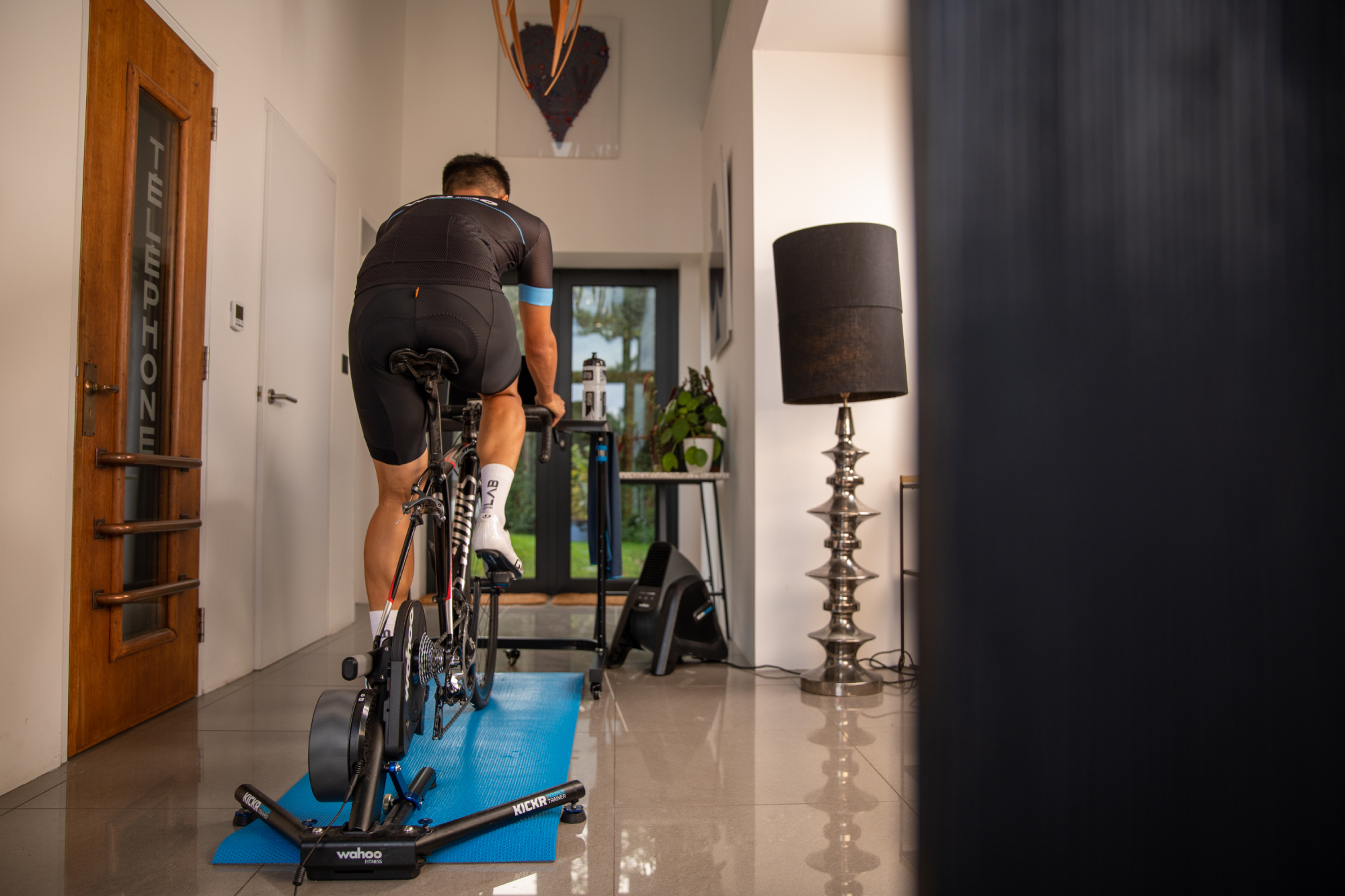Ask a coach: 'Why are over-under workouts so hard?'
Here's what's going on inside the body which makes these workouts so tough - plus all the benefits of completing them


For the uninitiated, over-under cycling workouts involve repeated short periods above threshold power interspersed with short periods below threshold power. They can be one of the toughest indoor cycling sessions - often more so than simply riding at threshold! But why is that? Cycling coach James Spragg explains what's going on in the body that makes them so hard.

Sports scientist and coach James Spragg is one of the experts who will be answering your questions in Cycling Weekly's ASK A CYCLING COACH series which comes out every Wednesday. Working both in research and applied settings, he currently runs Intercept Performance Consultancy.
What happens when we ride above threshold?
Have you ever wondered why, from a physiological point of view – there is a threshold power? Why can’t we just produce more power?! Well, there are a few reasons; physiological processes that occur when riding above threshold power and not below it.
Whenever we exercise there are changes that happen in the working muscles. Certain substances are broken down and as a result, new substances appear. These substances are known as metabolites – they include hydrogen ions (H+), inorganic phosphate (Pi), and potassium ions (K+) and a few others. These metabolites, above certain concentrations, affect how efficiently the muscle cells function. Therefore, our bodies are quite good at processing them; but they can only be processed at a fixed rate. If we exercise hard then we produce them at a faster rate than they can be processed, and the concentrations rise.
At a certain point, concentrations rise to the point where the muscles become less and less efficient and can therefore produce less power. At the same time nerves around our muscles are sensing the increase in these metabolites and sending our brain signals that it needs to slow down. It turns out that this cross-over point is your threshold power.
Simply put, whenever we exercise above threshold, we become less efficient; we therefore need more oxygen to produce the same power. At the same time it feels harder and harder and the motivation to stop increases.
What about over-unders?

When we do over-under cycling workouts what we are doing is actually inducing a build-up of metabolites, a loss of efficiency, and a whole lot so signals to the brain saying ‘this hurts’ in the 'over' section (the bit above threshold power); and then giving our bodies the capacity to process those metabolites, regain efficiency and tell the brain ‘all is ok again’ in the 'under' section (the bit below threshold power).
Even if we are able to process all the metabolites by the end of the 'under' section we will still spend most of our time in the hurty (sic) place where we are operating with reduced efficiency and negative feedback going from the muscles to the brain.
Get The Leadout Newsletter
The latest race content, interviews, features, reviews and expert buying guides, direct to your inbox!
This is why they can feel so hard but are often quite sustainable!
The benefits of doing over-under cycling workouts
The good news is that increased levels of these metabolites, and reduced levels of the things that were broken down to release them, trigger adaptation pathways in our bodies.
Because of the recovery in the 'under' section of each interval, we are just about able to go again each time. This means across a session we can notch up more time with elevated metabolite levels than if we were to simply do intervals above threshold. More time ‘under load’ so to speak means a greater stimulus for adaptation.
Conclusion
Under-over cycling workouts are hard, and that's because you are inducing changes at a muscle cell level that not only makes your body less efficient, but that also tells your brain it feels hard. However, because of this they can be a very effective training tool.

Thank you for reading 20 articles this month* Join now for unlimited access
Enjoy your first month for just £1 / $1 / €1
*Read 5 free articles per month without a subscription

Join now for unlimited access
Try first month for just £1 / $1 / €1
James Spragg is a sports scientist and coach, working both in research and applied settings. When not working with athletes James can be found skiing, climbing, cycling or drinking coffee!
Alongside Dan Lorang and Peter Leo, James runs Intercept Performance Consultancy. Over the last 8 years in various roles, as coaches, performance consultants, performance managers, and sports scientists, Dan, James and Peter have played a role in helping athletes achieve more than 10 World Championship titles, several Olympics medals (including a Gold and Silver Medal in Tokyo 2020) and several Top 5 results in some of the biggest sporting events on the planet (Tour de France, Olympics, World and European Championships). Our single focus is on improving performance in all settings.
-
 'This is the marriage venue, no?': how one rider ran the whole gamut of hallucinations in a single race
'This is the marriage venue, no?': how one rider ran the whole gamut of hallucinations in a single raceKabir Rachure's first RAAM was a crazy experience in more ways than one, he tells Cycling Weekly's Going Long podcast
By James Shrubsall
-
 Full Tour of Britain Women route announced, taking place from North Yorkshire to Glasgow
Full Tour of Britain Women route announced, taking place from North Yorkshire to GlasgowBritish Cycling's Women's WorldTour four-stage race will take place in northern England and Scotland
By Tom Thewlis